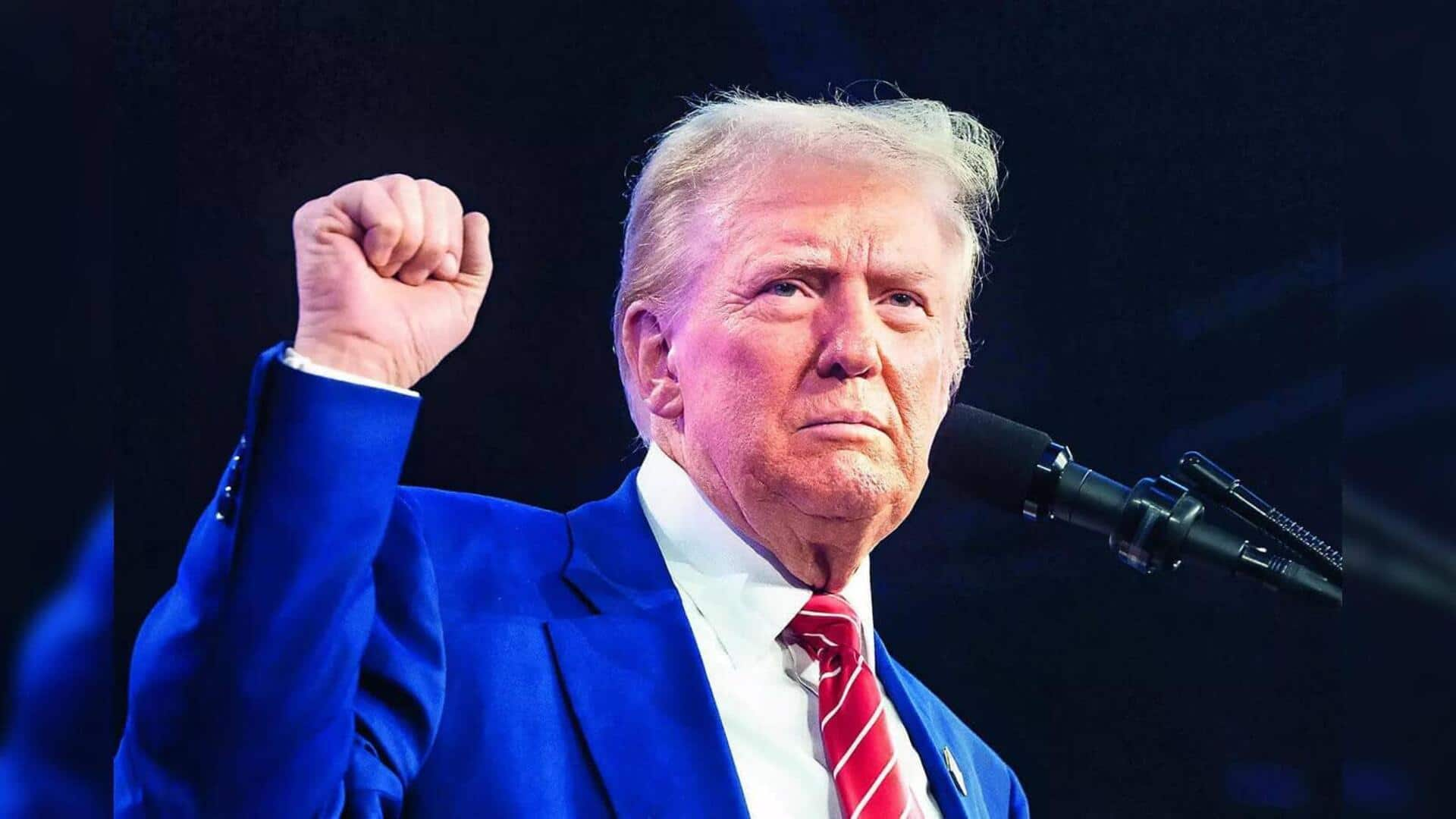
Trump announces reciprocal tariffs, targeting allies and adversaries
What's the story
United States President Donald Trump has unveiled a new "reciprocal tariffs" policy, aimed at both allies and adversaries.
The president said from the Oval Office that these tariffs are aimed at countering what he perceives as unfair trade practices by US trading partners.
US allies were often "worse than our enemies" on trade issues, he told reporters.
He said the duties would be tailored for each partner, considering things like value added tax (VAT).
Document
No other country can complain: Trump
Trump signed a memorandum directing his advisers to calculate equivalent tariffs on foreign countries, but offered few details about the plan.
The document does not specify exact retaliatory tariffs, but rather directs the US president's advisers to determine what measures should be implemented on individual countries.
"I've decided for purposes of fairness that I will charge a reciprocal tariff, It's fair to all. No other country can complain," Trump said as he signed the memorandum.
Potential impact
Reciprocal tariffs could impact emerging markets
The announcement comes ahead of a meeting with Indian Prime Minister Narendra Modi in Washington.
Analysts have cautioned that these duties could lead to higher tariffs for emerging markets such as India and Thailand, which already have higher effective tariff rates on US goods.
However, countries with existing trade agreements with the US, such as South Korea, may be less impacted by this new policy.
Economic warnings
Economists warn of potential inflation and hindered growth
According to data from the US Census Bureau and the Indian government, the US is India's top trading partner, while India is the US's 10th.
Last year, Trump described India as a "big tariff abuser."
Trump had a close relationship with Modi throughout his first term, and when he visited India in 2020, he was greeted warmly.
Whether the president intends to make tariff exclusions for India may reflect the strength of their current relationship.
Campaign pledge
Reciprocal tariffs: A core campaign promise by Trump
The reciprocal tariff strategy was one of the key campaign promises of Trump, who described it as "an eye for an eye, a tariff for a tariff."
Meaning if India levies 25% tariff on US autos, the US would do the same on Indian auto imports.
The reciprocal tariffs join the 10% across-the-board tariff imposed last week, as well as other tariffs on Chinese goods and harsher 25% penalties on steel and aluminum announced by Trump on Monday.
Trade strategy
Tariffs aim to address trade deficits and revenue concerns
The White House official has said these tariffs won't be imposed immediately, giving time to renegotiate trade terms with other countries.
The move aims to tackle wide trade deficits and differences in tariff rates levied on US goods as opposed to those levied by the US.
This plan is part of Trump's larger plan to generate revenue to extend his 2017 tax cuts while tackling perceived unfair international trade practices.